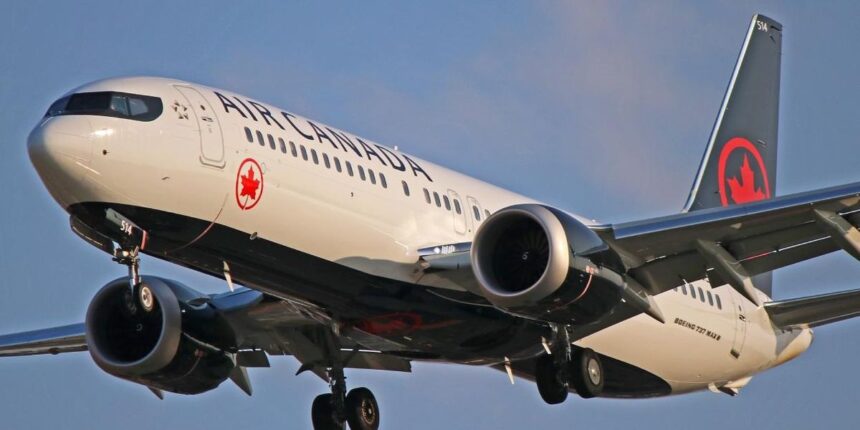Air Canada is facing a record $10 million fine from Quebec’s consumer watchdog over allegations of deceptive ticket pricing practices. The Office de la protection du consommateur (OPC) announced the penalty yesterday after a lengthy investigation into how the airline advertises its fares.
As someone who’s covered Montreal’s business landscape for years, I’ve watched this story develop with particular interest. The fine represents the largest consumer protection penalty ever issued in Quebec’s history, signaling a significant shift in how seriously authorities are taking pricing transparency.
“This isn’t just about a few dollars in hidden fees,” explains Claude Drapeau, consumer rights advocate with Montréal Équitable. “It’s about fundamental business ethics and respecting Quebec consumers’ right to clear, upfront pricing.”
The investigation centered on Air Canada’s practice of advertising base fares that allegedly didn’t include mandatory fees and surcharges, effectively making the actual cost substantially higher than what consumers initially saw. According to the OPC’s findings, this affected thousands of Quebec travelers between 2018 and 2022.
What strikes me about this case is how it reflects broader frustrations I’ve heard from Montrealers about airline pricing. Just last month while covering a travel expo at Palais des congrès, numerous attendees shared stories of price shock at checkout when booking flights.
Air Canada has responded with a statement expressing disappointment with the decision, maintaining that their pricing practices comply with federal regulations governing air travel. “We operate in a highly regulated environment and have always strived to provide transparent pricing to our customers,” the airline stated.
Legal experts predict a potential challenge to the fine. “The tension between provincial consumer protection laws and federal aviation regulations creates a complex legal landscape,” notes Sophie Tremblay, attorney specializing in transportation law at Juriprudence Montréal. “Air Canada will likely argue federal jurisdiction supersedes provincial authority in this matter.”
For consumers, the case highlights the importance of reading the fine print when booking travel. The OPC recommends Quebecers carefully review all additional charges before completing any airline ticket purchase and report potential violations to consumer protection authorities.
Transport Canada statistics show airlines collected over $2.5 billion in ancillary fees last year, underscoring how significant these additional charges have become to airline revenue models.
The impact of this fine could extend well beyond Air Canada. Other airlines operating in Quebec will undoubtedly reassess their own pricing displays to ensure compliance with provincial regulations. This ripple effect might potentially benefit travelers across Canada if it leads to industry-wide pricing transparency improvements.
As this story continues to develop, I’ll be watching closely to see whether this marks a turning point in how airlines communicate costs to consumers. After all, clear pricing isn’t just a legal requirement—it’s fundamental to building consumer trust in an industry where that commodity has become increasingly precious.







